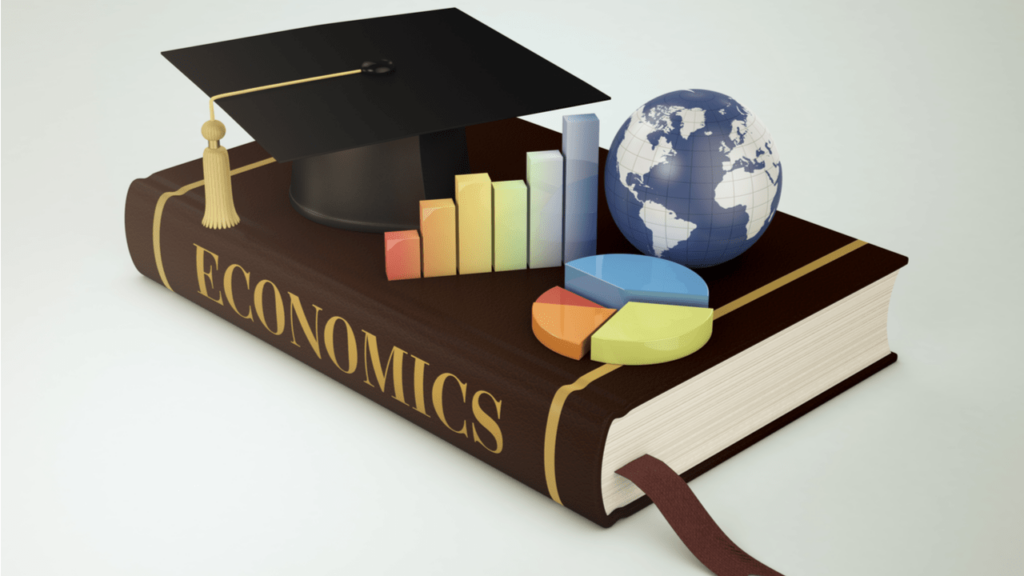Housing thousands of international students every year, Canada has become a leading player in providing higher education. From arts to scientific research, Canadian universities offer globally recognized courses in a range of fields, including economies. Over 20 Canadian universities rank in the top 500 universities in the world in 2022 for education in economics and econometrics. However, shortlisting a university for pursuing masters in economics in Canada can be a daunting task. You need to consider various factors such as their ranking, courses offered, tuition fees, financial aid, opportunities post studying, and more. In this blog, you will learn about top universities in Canada for masters of economics, the programmes offered, and their fees. You will also learn about eligibility requirements and the application process for a master’s in economics in Canada.

Top 10 Universities for Masters in Economics in Canada
Now that we have discussed the perks of studying in Canada, here is a list of top universities for pursuing higher education in economics, along with their courses, fees and IELTS scores required.
[table id=549 /]
Choose your dream country
When do you want to study abroad?
What's your highest level of education?
Select you current city
How Leap will help you
Personalised University Shortlist
Express Applications with Quicker Admits
End-to-End Application Support
Also Read: IELTS 5.5 Band Colleges in Canada International applicants must note the above values for tuition fees are approximate and will vary depending on the course they have chosen. Moreover, the costs above are only for studying, and applicants need to consider other living expenses such as housing, food, commute, stationary, health and medical costs, etc.
Masters in Economics in Canada Overview
Masters in economics are available as Master of Arts (M.A.) and Master of Science (M.Sc.) in Canadian universities, with course duration, typically ranging from 1 to 2 years depending on your chosen degree. Over 20 universities in Canada offer programmes for postgraduate higher studies in economics. The programmes involve autonomous study and research using complex statistical data, offering specializations in a broad range of disciplines, including development economics, economic policy, natural resource and environmental economics, agriculture economics, financial and labour economics, international economics, and more. However, Canadian universities have a standard curriculum structure for most economics programmes offered by them, with the layout covering aspects of:
- Econometrics
- Microeconomics
- Macroeconomics
- Financial economics
- Interpretational economics.
Although, the core curriculum may differ in every school, with each programme integrating special aspects such as social sciences or sociology. Moreover, another advantage is that students can choose to pursue coursework or thesis-based studies in master's in economics programmes. Let us look at some more reasons to pursue a master of economics in Canada.
Benefits of Study Master of Economics in Canada
Apart from globally acclaimed curriculums and exposure to advanced knowledge, there are ample benefits of studying master of economics in Canada:
- According to QS world university rankings 2022 for Economics & Econometrics, almost 20 Canadian colleges rank in the top 500.
- About 1.7 million new jobs are projected to emerge as a result of economic expansion and growth (from 2019 to 2028).
- Studying in Canada is more affordable as compared to tuition fees of universities than in the USA, Australia, etc.
- The number of grants and scholarships available in the form of scholarships, fellowships, and other funding is more than in the USA.
- International students can work part-time while studying to support their living in Canada and gain work experience.
- The immigration and visa process is easy and friendly, and three intakes are available in a year for students (fall, winter, and summer).
Eligibility Requirements for Masters in Economics in Canada
Following are the minimum qualifying requirements for studying for a master's in economics in Canada. Applicants must have:
- Completed a bachelor's degree in economics or relevant fields, with a preference in advanced economic theory, mathematics, statistics, microeconomics, macroeconomics, and econometrics.
- Minimum GPA of 3 (out of 4) or CGPA of 7 to 8 (out of 10).
- GRE scores (minimum 300 or more) as required by the university you want to apply
- English language proficiency test scores as required by the university
- Sufficient financial funding to support education and living in Canada.
Overall, the admission eligibility will be evaluated based on the academic, analytical, and abstract skills of the applicant. If you have work experience related to the field, it provides an added advantage for securing admission.
Documents Required
- Official transcripts/mark sheets of previous degree/diploma
- CV (curriculum vitae)
- Statement of Purpose (SOP)
- Letters of recommendation
- Reports of other academic or professional achievements, if any
- English proficiency test scorecard
- Passport copy
- Financial proof showing sufficient funds to afford to study and live in Canada
- Proof of scholarship, if any
Also Read: Letter of Recommendation: Guideline with Sample
Application Process for Masters in Economics in Canada
Now that you are aware of your eligibility and the documents required for the admission application, you can follow the below steps for applying:
- Visit the official website of the college to apply online
- Check the deadlines and admission requirements of the programme you want to apply for.
- Duly fill out and submit the application form and pay the application fees (differs according to universities).
- Once the application is successfully submitted, take a printed copy of it and the payment receipt for your reference.
- After your admission is confirmed, apply for a student permit (student visa) for Canada.

Conclusion
Canadian degrees in all fields are internationally recognized. So if you are planning to pursue a master's in economics in Canada, you are looking toward a bright future. We hope this article has given you all the guidance on studying economics in Canada after your bachelor's. If you still have queries, contact our LeapScholar experts, who have years of experience and expertise in aiding students to fulfil their dream of studying abroad. Related Articles:
- Top Universities for PhD In Economics Canada
- Universities & Requirements to study Master of Economics in UK
Frequently Asked Questions [faq-schema id="7227"]















Have Questions? Get Guidance to reach your Dream University
Connect with India's finest counsellors and biggest study abroad community.
Get Guidance